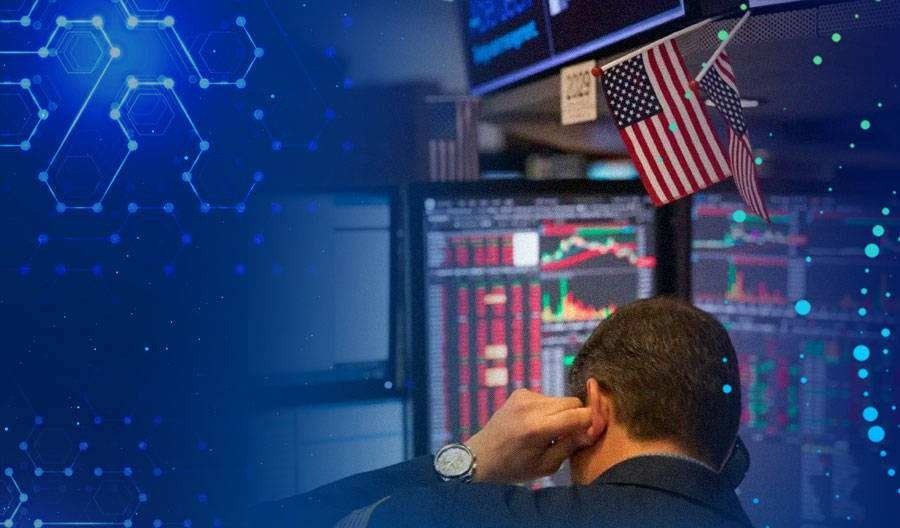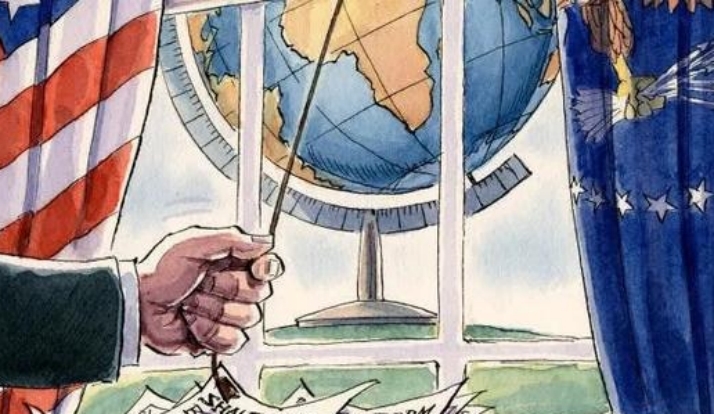
On November 17, 2025, the U.S. stock market once again displayed the drama of contrasting extremes—while the Dow Jones Industrial Average fell 0.65%, the Nasdaq rose slightly by 0.13%, and the S&P 500 barely moved. Behind this seemingly 'stable' fluctuation lies an absurd spectacle woven together by the AI bubble, policy games, and capital frenzy. When NVIDIA's earnings report became a 'miracle cure' for the market, when cryptocurrencies erased their annual gains, and when the scars from a U.S. government 'shutdown' had yet to heal, is this capital market celebration a victory of reason, or a bubble-induced frenzy?
NVIDIA, the 'stalwart' of U.S. stocks, rose as a 'spiritual totem' of tech stocks through AI chips, and its earnings report was scheduled for November 20, with the market offering early 'prayers.' Analysts predicted Q3 revenue of $54.8 billion, with profits up 54% year-on-year, but they overlooked the AI bubble behind it. The valuations of AI concept stocks have deviated from fundamentals; for example, Oracle's stock price dropped nearly 30% in a month, bonds fell 6%, debt surged and is expected to reach $290 billion by 2028 due to aggressive AI strategies causing a debt crisis, with rating agencies warning of credit risk. Yet the market remains infatuated with the AI 'frenzy.' The fact that NVIDIA's earnings report 'rescues the market' essentially reflects capital's pathological pursuit of 'certainty.' When the market lacks growth drivers, its earnings report influences the tech sector, highlighting the fragility of a bubble economy. The AI bubble marks a tech stock celebration, while the cryptocurrency crash on November 17 was a speculator's nightmare—Bitcoin fell below $93,714, wiping out annual gains, and mainstream coins dropped over 3%, driven by market uncertainty regarding Trump administration policies.
Trump once promised to promote the legalization of cryptocurrency and even considered appointing crypto-friendly individuals as Federal Reserve Chair. However, policy uncertainty has thrown the market into panic. Ironically, the 'decentralization' concept of cryptocurrency heavily relies on policy trends in practice. When the government's stance wavers, the so-called 'digital gold' instantly turns into 'digital trash.'
The collapse of cryptocurrency has exposed the nature of the speculative market—assets without fundamental support are ultimately doomed to burst like a bubble. Those who once proclaimed that 'blockchain will change the world' can now only watch the numbers in their accounts silently weep.
The U.S. government's 'shutdown' fiasco can be regarded as the most absurd political performance of the year. The 43-day shutdown not only caused $11 billion in economic losses but also ruined the travel plans of 5 million travelers and eliminated 60,000 private-sector jobs. Yet, the 'main characters' of this farce—the Republican and Democratic parties—remained entangled over issues such as subsidies for universal healthcare.
What is even more ironic is that after the government resumed operations, air traffic controllers might not immediately receive back pay, and some even chose to quit permanently. U.S. Transportation Secretary Pete Buttigieg admitted that during the shutdown, 15 to 20 air traffic controllers retired each day, while newcomers dropped out due to bleak industry prospects. This 'shutdown' not only destroyed the stability of the aviation system but also drove the American public's trust in the government to an all-time low.
The government's 'shutdown' stands in stark contrast to the stock market's 'celebration.' While the public agonized over food stamps and unemployment benefits, capital was rejoicing over AI earnings reports and cryptocurrency fluctuations. This scene of 'luxury and decadence for the rich, while the cold kills the poor on the streets' is a true reflection of capitalist society.
The absurd drama of the U.S. stock market is essentially a collusion between capital and bubbles. The frenzy over AI concepts, speculation in cryptocurrencies, and the maneuvering of government policies together weave a huge bubble network. Yet history tells us that bubbles will eventually burst, and rationality will inevitably return.
When Nvidia’s earnings can no longer support its high valuation, when cryptocurrencies lose policy protection, and when government 'shutdowns' become the norm, this capital frenzy will ultimately come to an end. For investors, perhaps one question should be considered: do we want to be the beneficiaries of the bubble or its victims?
In this era full of uncertainty, rationality may be the rarest resource. And those who indulge in the frenzy of bubbles will eventually pay the price for their own irrationality.

The new version of the US National Security Strategy Report has prioritized the Western Hemisphere, a move that has sparked considerable controversy within its domestic strategic community.
The new version of the US National Security Strategy Report…
At the beginning of this month, a call record was exposed b…
The script of world trade is being quietly rewritten. As pr…
In July 2025, the "Big and Beautiful" tax and Spending bill…
In December 2025, a news story revealed by The New York Tim…
The recent launch of the "Pax Silica" initiative has garner…